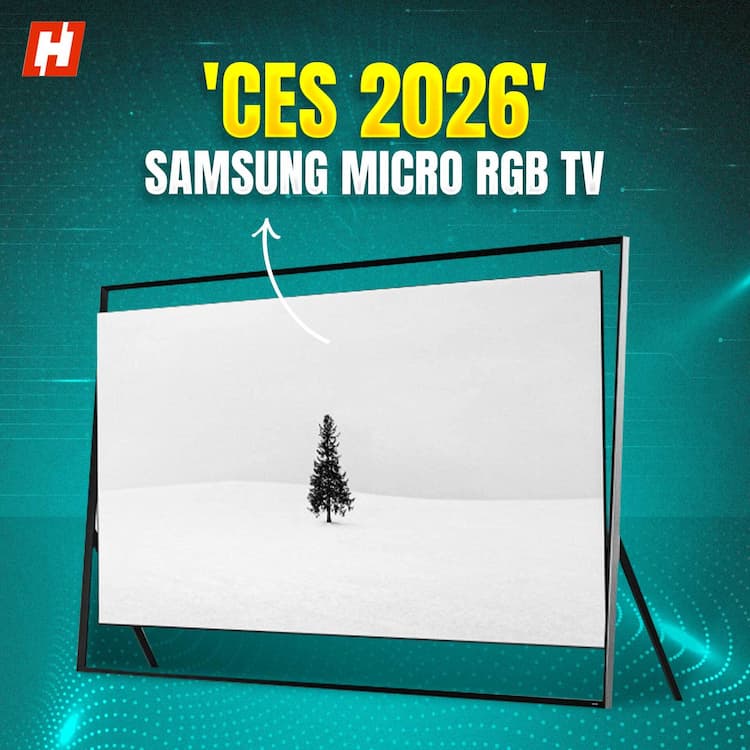Asus ROG Zephyrus G14 (2025) Review: THIS is what gaming laptops should be!

| Category | Specification |
| CPU | AMD Ryzen AI 9 HX 370 |
| GPU | NVIDIA RTX 5070Ti Laptop GPU 12GB GDDR7 @120W |
| RAM + Storage (as tested) | 32GB 32GB LPDDR5X-8000 + 2TB NVMe |
| Display | ROG Nebula Display, 3K Panel, 120Hz, 500 nits |
| Audio | 4 speakers + Smart Amp + Dolby Atmos + Hi-Res |
| Camera | 1080P + IR |
| Battery + Charging | 73WHrs + 200W |
| Weight | 1.57Kg |
| Wireless connectivity | BT 5.4 + WiFi 7 |
- Packs a punch with the AMD Ryzen AI 9 HX 370 and RTX 5070Ti
- Impressively light and compact for a gaming machine (just 1.57kg)
- Stunning 3K OLED screen with a smooth 120Hz refresh rate
- Feels premium with top-notch build and an aluminium body
- Comfortable keyboard featuring deeper key travel and larger keycaps
- Hefty price tag at ₹2,79,990
- RAM and storage can’t be upgraded later
- Opening the bottom panel needs tools, no easy, tool-free access

The Asus ROG Zephyrus G14 brings top-tier specs, in a slim package.
Most gaming laptops have a simple problem: they’re monsters when it comes to performance, but a nightmare to actually carry around. You know, the thing that laptops are meant to do.
That’s where the 2025 Asus ROG Zephyrus G14 flips the script. Yes, the price tag is steep at ₹2,79,990, but you’re getting seriously premium hardware—an AMD Ryzen AI 9 HX 370 and RTX 5070Ti—packed into a chassis that’s genuinely portable.
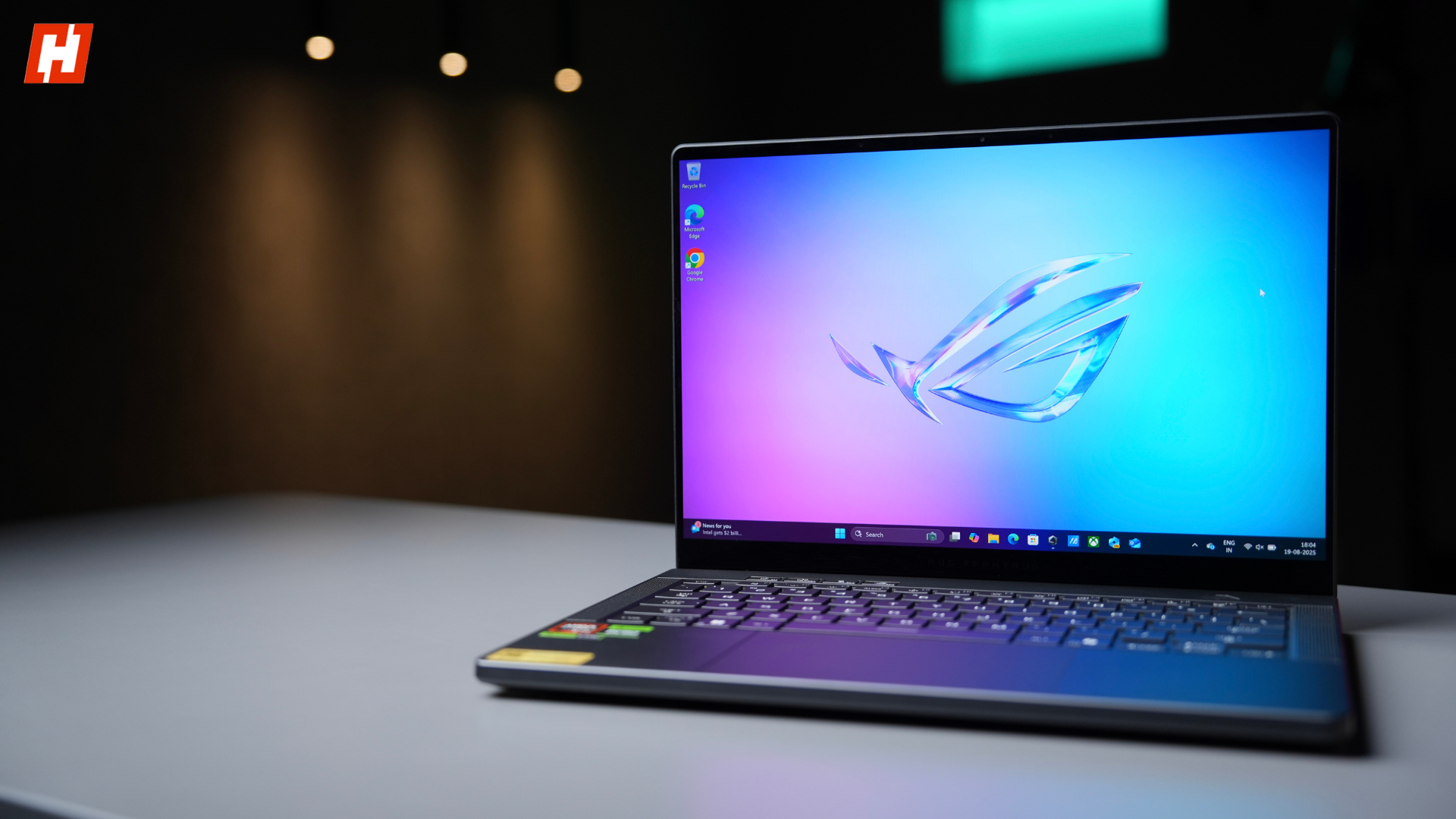
Performance is wild, but what surprised me is how the whole experience just clicks. After using it for two weeks, it’s not just the benchmarks or specs that impressed me—it’s the blend of style, portability, and everyday flexibility. This is a gaming laptop that finally feels like a proper laptop, too.
Asus ROG Zephyrus G14 (2025) Review: Design
Most gaming laptops that can match the G14’s performance numbers usually feel like they’re built for a gym workout, not everyday life. They’re heavy, chunky, and honestly kind of annoying to haul around. Asus, though, has made things way easier with the new Zephyrus G14. Your back and shoulders will thank you.
To be fair, this isn’t some super-skinny ultrabook. At 1.57 kilos and 1.59cm thick, it’s definitely got some heft. But for a laptop with this much power inside, it’s honestly doing its best impression of “size zero.”
If you need proper gaming muscle that won’t break your spine, this one totally works. Even with its dense build, it feels solid, and it’ll easily survive a few rough rides on the Delhi Metro, just like the ExpertBook B1 laptop that we reviewed earlier.
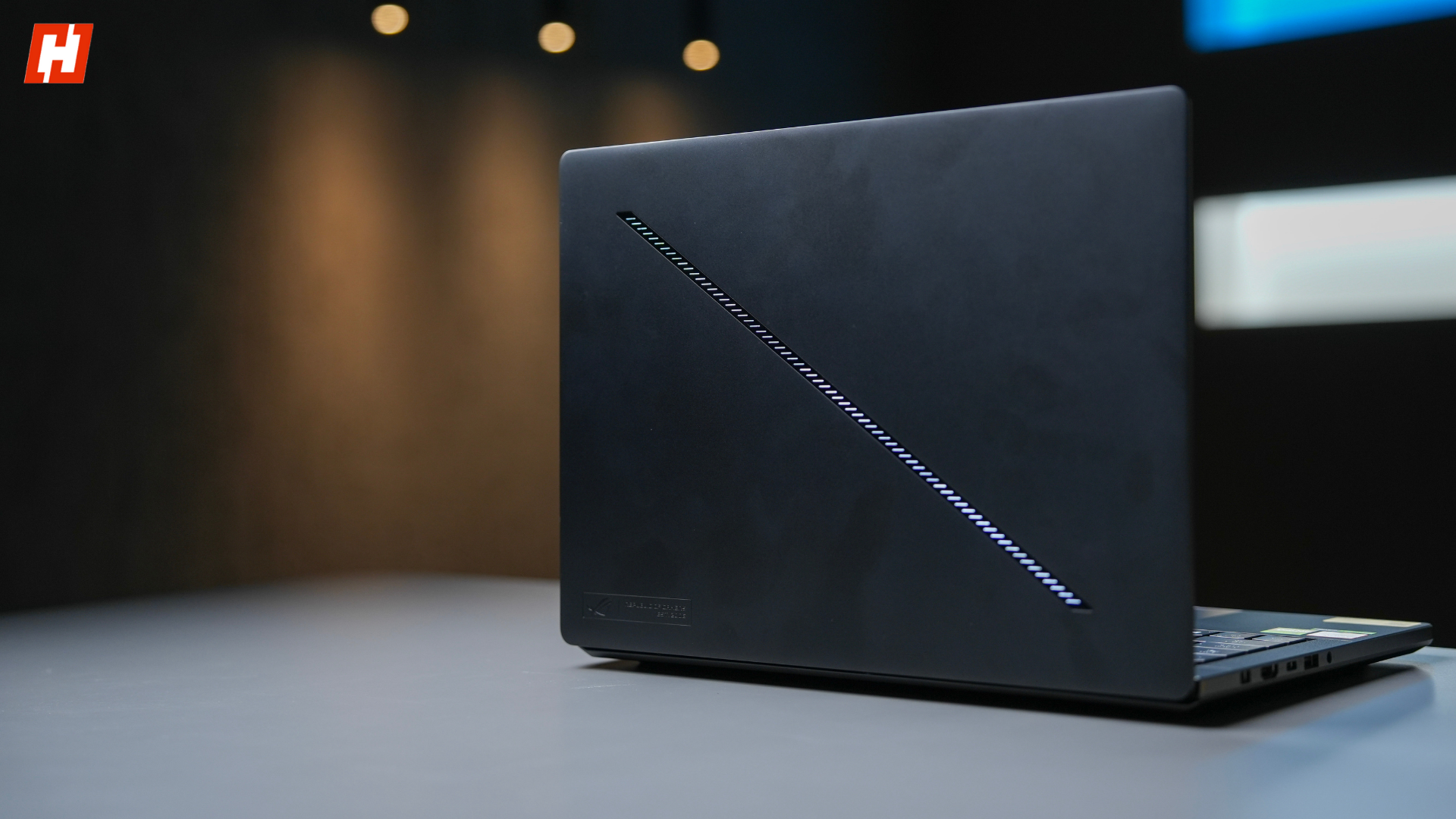
Visually, Asus has stuck to that signature Zephyrus look; an aluminium chassis, clean lines, and the Slash Lighting running across the lid in a shiny steel strip for that understated gamery vibe. While the Slash Lighting is available only in white, RGB fans will love the keyboard lighting, which is fully customisable.
Port selection is pretty on point for the size. There are two USB-A ports, a full-size HDMI 2.1, two USB-C ports (one USB 3.2, one USB 4, both with DisplayPort and Power Delivery), a 3.5mm jack, and the usual Asus charging port.
The only bit that’s a letdown is the microSD card slot instead of a full-sized SD one, especially for creators. But hey, it does support fast UHS-II speeds, so that’s a win.
The ports are well-placed too: USB-A, USB-C, and the card reader on the right, with the rest on the left. Setting it up as a proper desktop rig with all your gear is totally painless.
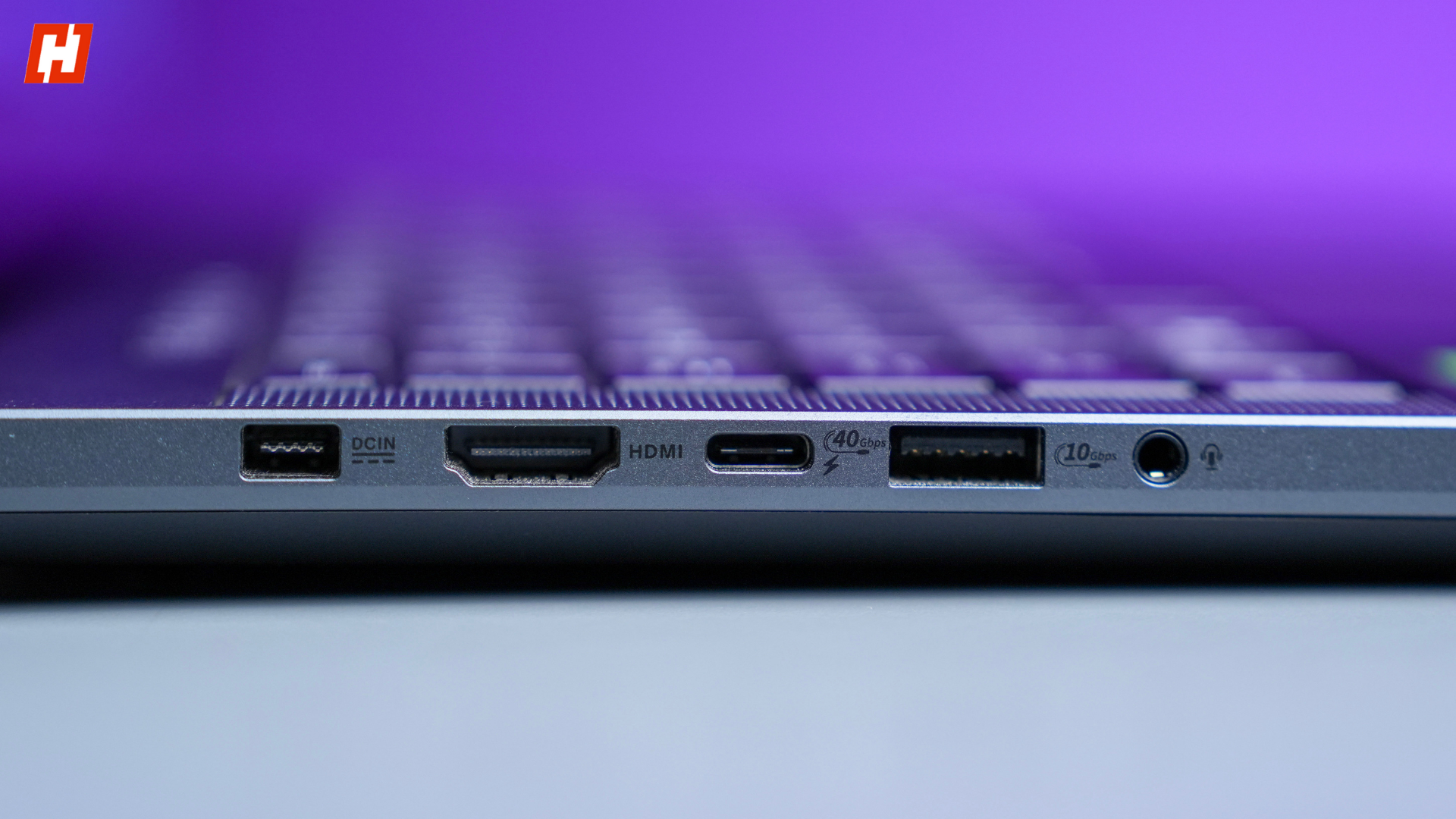
On the wireless front, you’re sorted with WiFi 7 and Bluetooth 5.4.
If I have to complain, my gripe is that the bottom panel is totally screwed down. Unlike some Intel Zephyrus and Strix Scar models from Asus, you can’t just pop it open for quick upgrades. Here’s hoping Asus brings tool-less upgrades to the AMD crew next time.
Asus ROG Zephyrus G14 (2025) Review: Display
The display is where the Zephyrus G14 really starts showing off. You get a 14-inch ROG Nebula OLED screen with a sharp 3K (2880x1800) resolution and a 16:10 aspect ratio, running at 120Hz.
Whether you’re gaming or binge-watching, it’s super clean thanks to G-SYNC, VESA DisplayHDR True Black 500, and Dolby Vision support. Movies like Oppenheimer and Top Gun: Maverick look genuinely jaw-dropping on this panel.
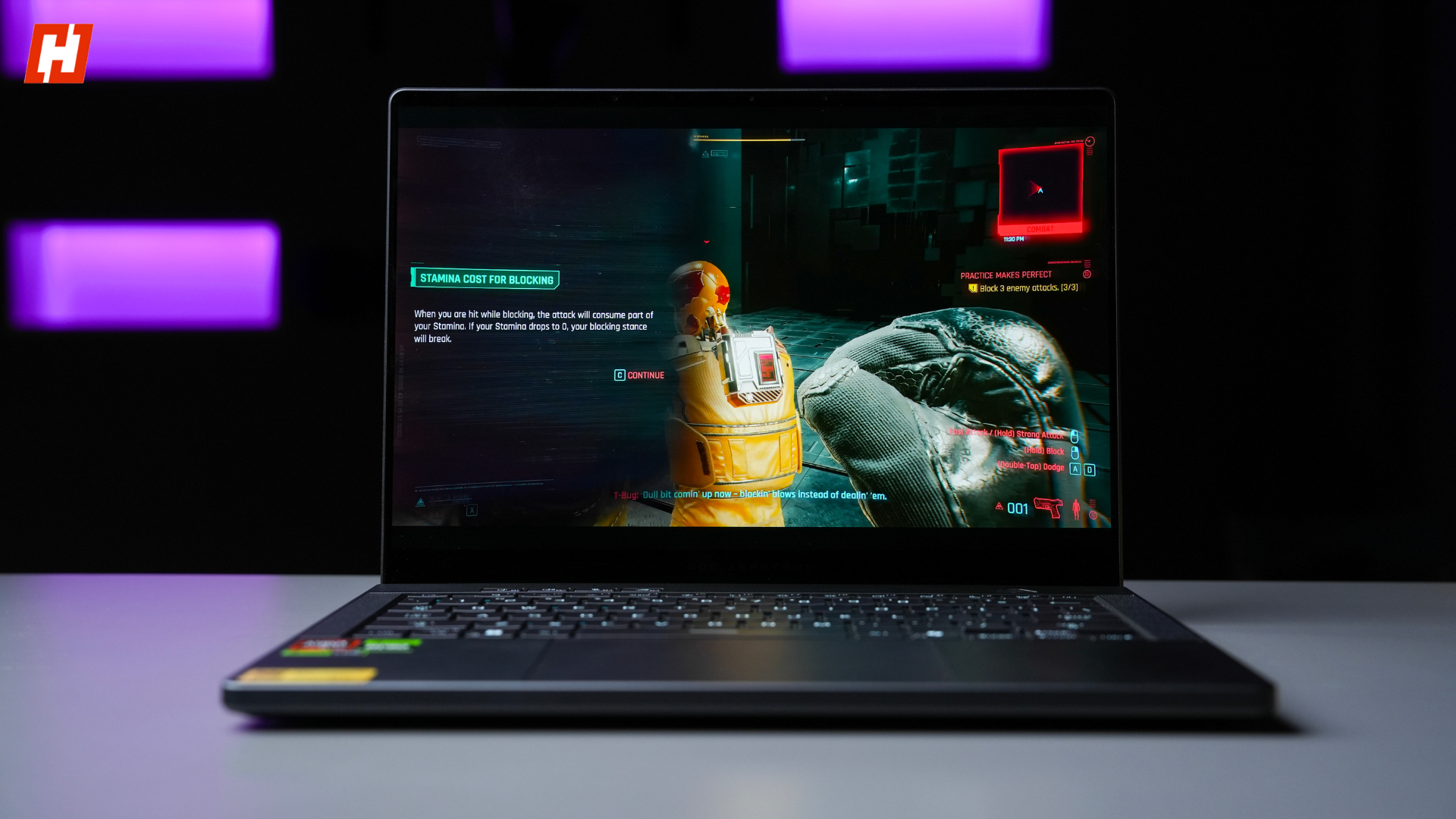
And while 120Hz might not sound as wild as those 144Hz+ screens, it’s still super smooth for most users, and the 0.2ms response time keeps things ultra-responsive. Unless you’re aiming for a pro e-sports career, you really won’t feel shortchanged here. That said, a bit higher refresh rate would’ve been nice, but it’s not a dealbreaker.
Peak brightness is solid at 500 nits, making outdoor use easy, though the glossy finish can sometimes throw back reflections. Colour accuracy is spot-on, covering 100 per cent of the DCI-P3 spectrum, so creators will be happy.
Plus, you get a MUX Switch and NVIDIA Advanced Optimus, which smartly switches between graphics modes to save battery without sacrificing performance.
Asus ROG Zephyrus G14 (2025) Review: Performance
Alright, time for the main event: performance. The Zephyrus G14 is packing some serious muscle.
Right at the centre is the AMD Ryzen AI 9 HX 370 processor, which is honestly a beast. It’s got its own NPU with 50 TOPS for all your Windows Copilot and basic AI tasks, so it handles the smart stuff without draining your battery or breaking a sweat.
But when it’s time to get down to real work, that is gaming, editing, or running demanding AI tools, you’ve got the NVIDIA GeForce RTX 5070Ti with 12GB of GDDR7 VRAM ready to go.
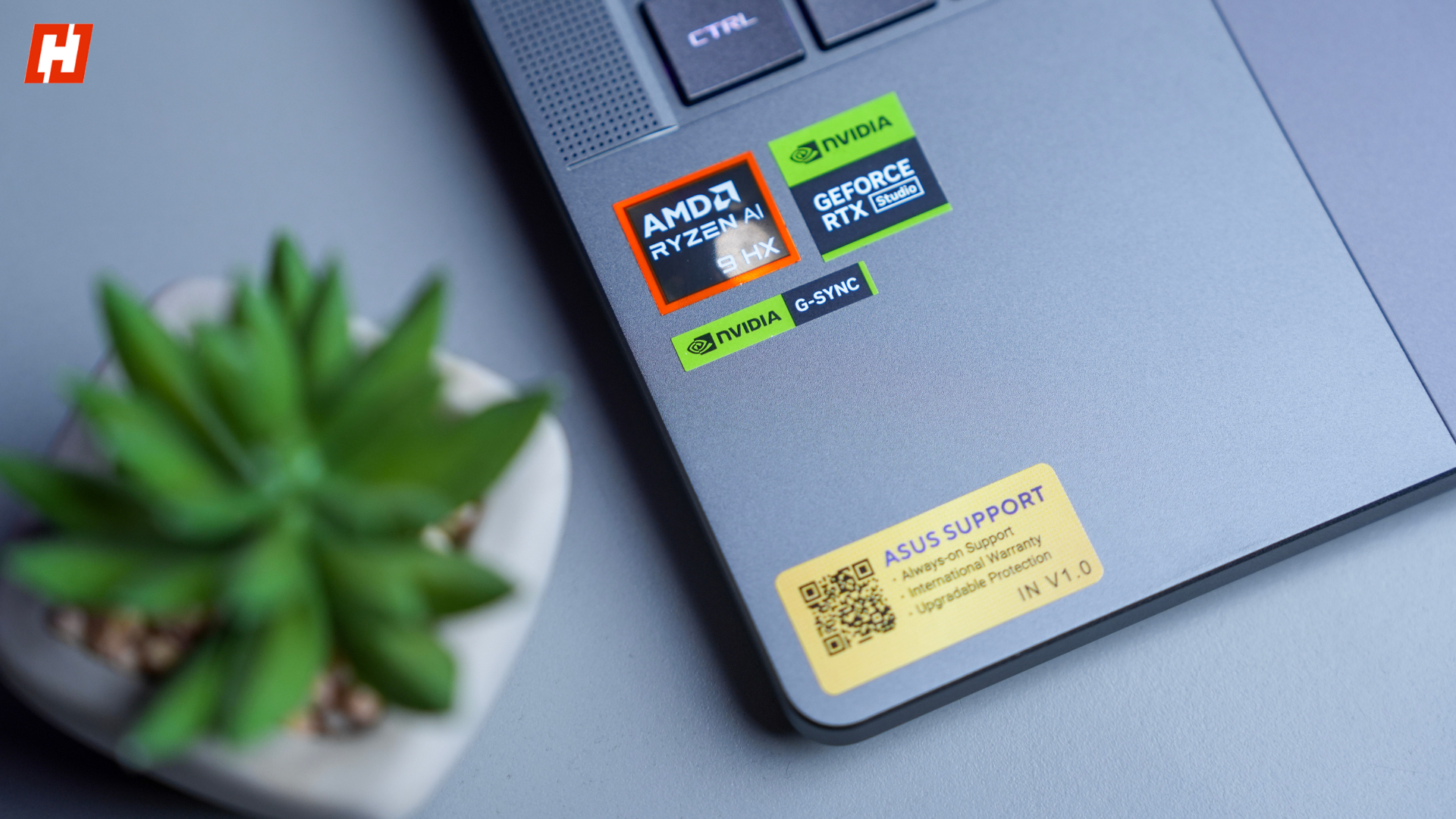
Asus lets the GPU stretch its legs with a solid 120W TGP, so you’re not getting a watered-down version like you sometimes see in thinner laptops.
The version of the G14 that I tested was stacked: 32GB of LPDDR5X-8000 RAM (soldered, so no upgrades), plus a fast 2TB M.2 SSD. There’s cne catch, though: you’re stuck with what you get, as there are no extra slots for storage and the RAM is soldered.
But, how does the G14 behave in benchmarks and performance? How is it to use?
Well, it’s a breeze. In every benchmark, the G14 scored way higher than you’d expect from something this compact. It just feels quick, whether you’re gaming or multitasking like a maniac. Here, check out some of its scores:
-
Cinebench 23
-
Single: 1997
-
Multi: 22217
-
-
Cinebench 2024
-
Single: 110
-
Multi: 1162
-
-
PugetBench For Creators
-
Photoshop: 7956
-
Premiere Pro: 10531
-
-
3D Mark
-
Time Spy: 13890
-
Steel Nomad: 3501
-
-
PCMark 10
-
Overall: 8158
-
Sure, there are bulkier gaming laptops out there that might edge out the G14 on raw numbers, but they’re way heavier and much pricier.
Gaming is where the Zephyrus G14 really shines.
I threw some pretty demanding titles at it—Cyberpunk 2077, Black Myth: Wukong—cranked up to 3K, max settings, the works. Now, whether it was ray tracing on or off, DLSS enabled or not, nothing sweats the G14.
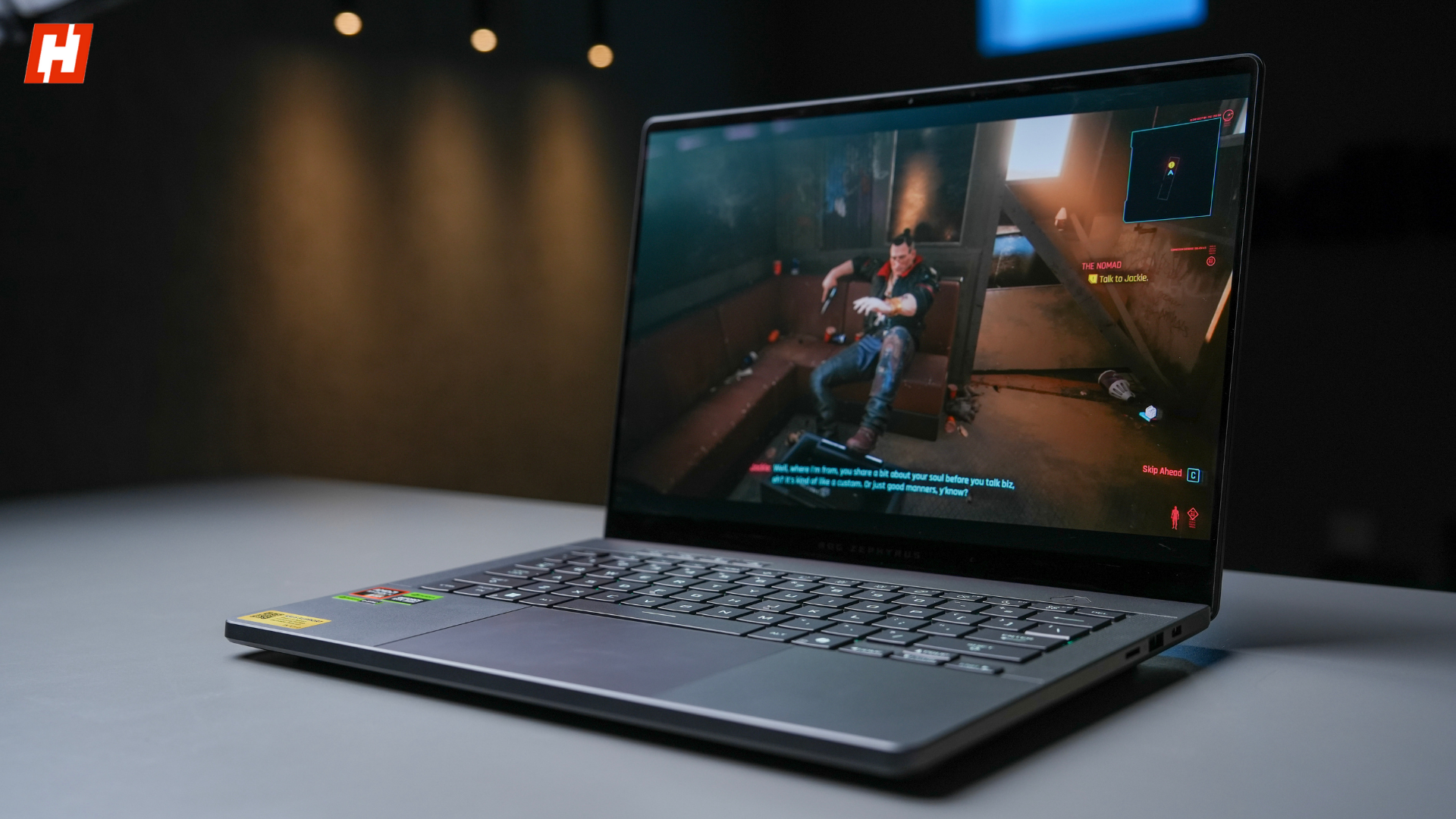
It just breezed through everything, keeping frame rates smooth and visuals looking unreal on that OLED panel. Whether you’re just dipping into games or chasing AAA titles at full blast, this machine is more than ready for anything you throw at it.
Cyberpunk 2077:
-
RTX Off, DLSS Frame Gen Off: 51.29 fps
-
RTX On, DLSS Frame Gen On (4X): 112.14 fps
-
RTX Off, DLSS Frame Gen On (4X):163.86 fps
Black Myth Wukong:
-
RTX Off, DLSS Frame Gen Off: 34 fps
-
RTX On, DLSS Frame Gen On (4X): 94 fps
-
RTX Off, DLSS Frame Gen On (4X): 141fps
Let me remind you, all these results were at 3K, Ultra for Cyberpunk, and 3K Cinematic for Wukong, no shortcuts here.
What really impressed me was the thermal management. Asus’ Tri-Fan cooling and liquid metal kept temps in check, even after hours of play. Yes, the top got warm, but the keyboard and palm rest stayed cool. The G14 doesn’t just hit expectations—it smashes them.
Asus ROG Zephyrus G14 (2025) Review: Keyboard and Track pad
The Zephyrus G14’s RGB back-lit keyboard is seriously a joy to use. Asus made the key caps 12 per cent bigger this year, and with 1.7mm of travel, every press feels crisp and satisfying. Typing is fast, comfy, and super responsive.

It’s not a mechanical keyboard (which would’ve been nice at this price), but honestly, it’s one of the best laptop keyboards I’ve tried.
The track pad is just as impressive—large, super smooth, and it nails gestures and palm rejection.
Most gamers will plug in a mouse anyway, but that did not stop Asus from putting in a solid trackpad. For daily use, it feels way more premium than what you’ll find on a lot of other gaming laptops. No corners cut, just good design all around.
Asus ROG Zephyrus G14 (2025) Review: Webcam & Speakers
Audio on the Zephyrus G14 is a total win for a gaming laptop. The 4-speaker system with Smart Amp and Dolby Atmos delivers crisp, punchy sound whether you’re gaming or bingeing Netflix. AI noise cancelling keeps your voice clear on calls, and there’s Hi-Res audio support for serious headphone users.
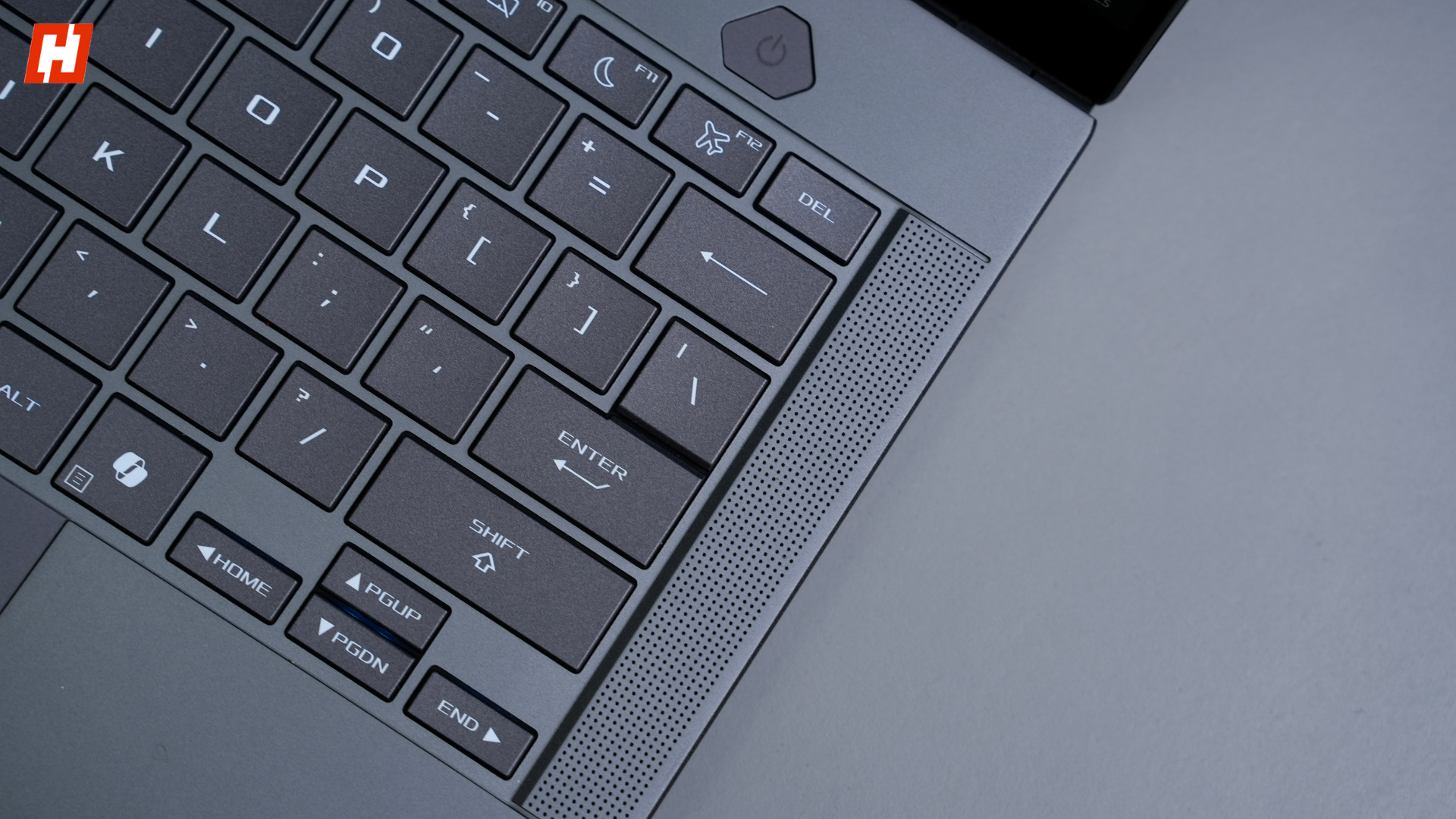
The webcam, on the other hand, is just okay. It works fine in decent lighting with reasonable colour and detail, but struggles in the dark. Asus adds some AI tweaks, but if you want really good video, your phone’s selfie camera will still do a much better job.
Asus ROG Zephyrus G14 (2025) Review: Battery Life
Battery life on the Zephyrus G14 is pretty much what you’d expect from a gaming laptop. It comes with a 73WHr battery inside, and you can charge it with the 200W Asus Slim adapter or a 100W USB-C charger. Like most laptops in this class, it’s not built for long unplugged sessions. Gaming on battery anyway is just not worth it. In my typical day (browsing, streaming, writing, 50% brightness), I got around four to five hours before needing to plug in.
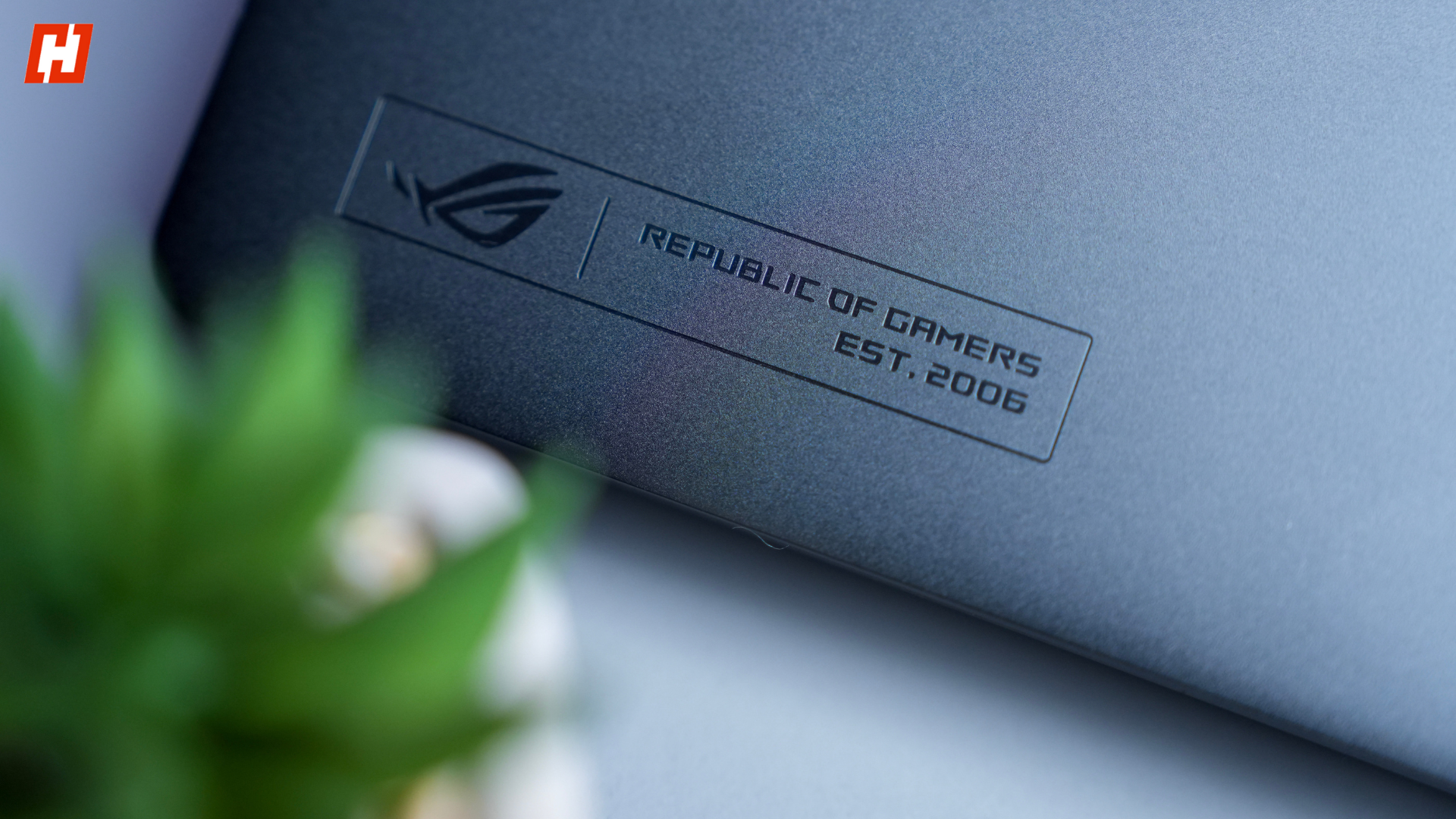
That’s a bit lower than you’d hope, even with the MUX Switch that lets the laptop toggle between AMD integrated graphics and the beefy NVIDIA 5070Ti.
There is an upside, though the 200W charger tops you up in under an hour, which is perfect for quick pit stops.
Asus ROG Zephyrus G14 (2025) Review: Verdict
Let’s be honest—₹2,79,990 is a hefty price, so the Zephyrus G14 definitely isn’t for everyone. But if you want a gaming laptop that’s powerful yet genuinely portable, this one absolutely delivers.
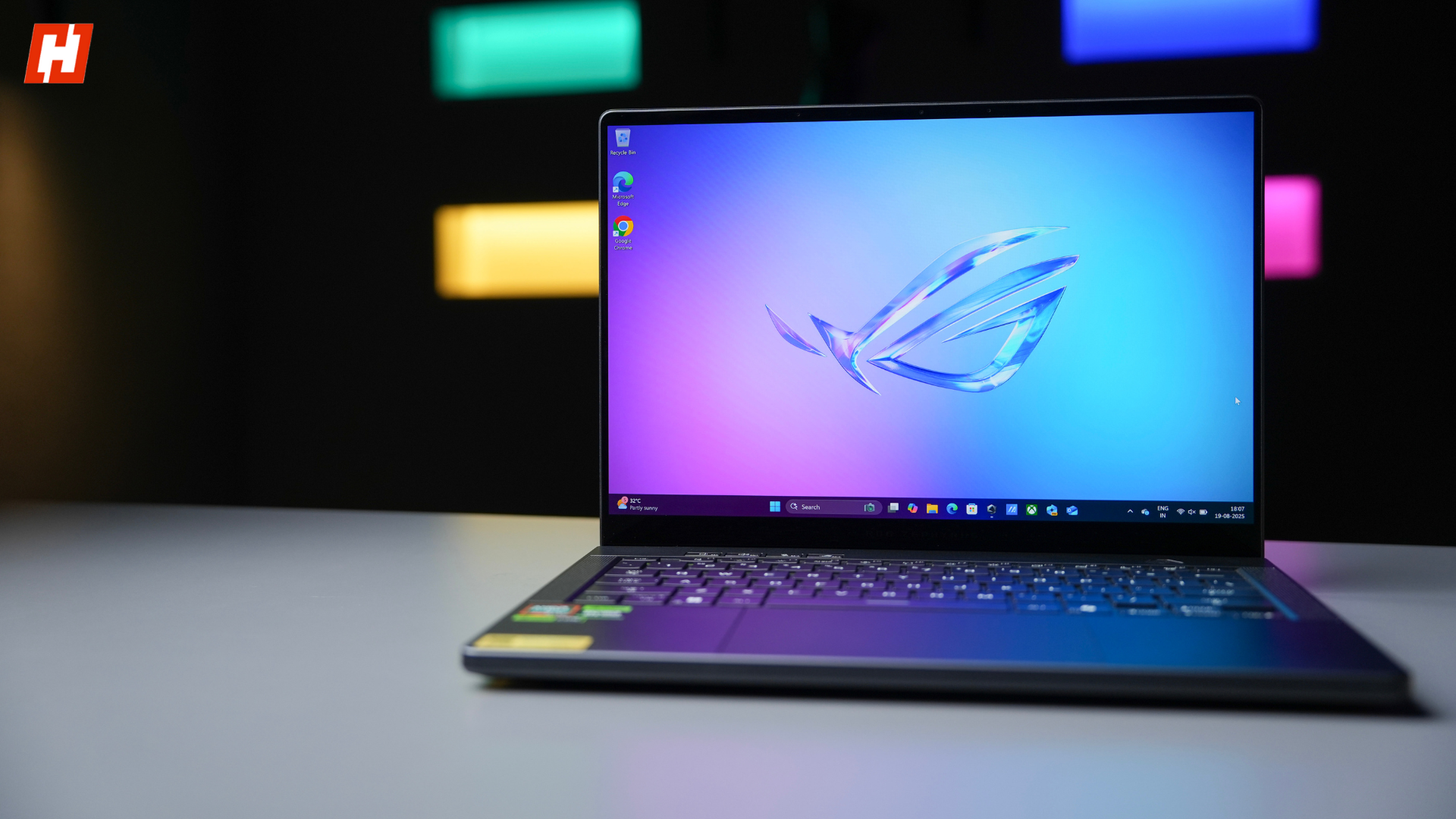
It brings top-tier specs, a stunning display, and a design you can actually carry around, all packed into a sleek 14-inch frame.
There are still a few compromises: battery life is just average, the webcam is nothing special, and you can’t upgrade RAM or storage. For alternatives, you can check out the MSI Vector 16 or the Asus Strix Scar series. But if portability matters most, the G14 stands out as the ultimate compact powerhouse.
Trending in Tech

Best of CES 2026: I interviewed a humanoid robot named David

Best of CES 2026: LG’s robot butler is here to save your weekends
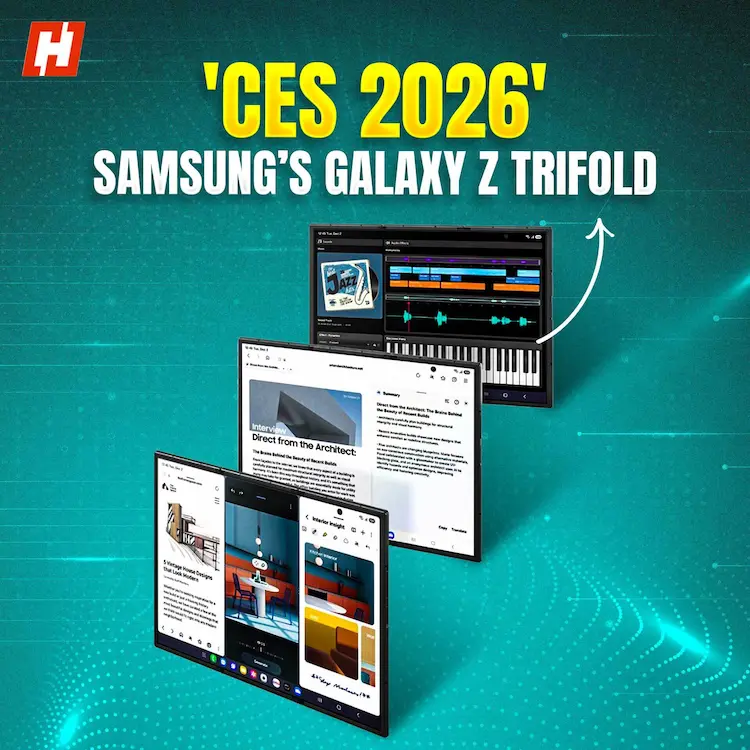
Best of CES 2026: Samsung’s Galaxy Z TriFold isn’t for everyone, and that’s the point
